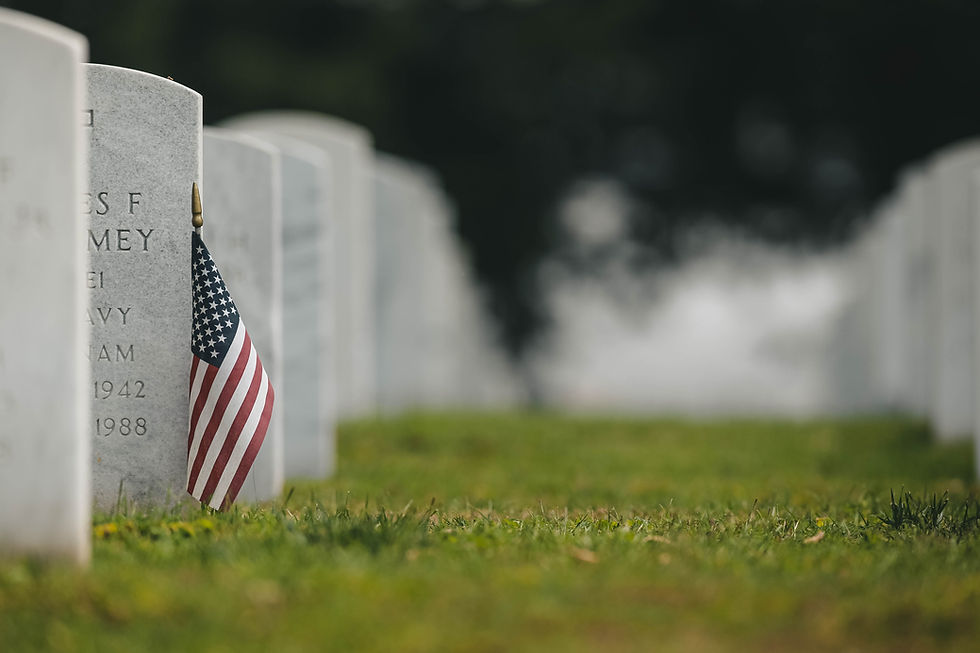Automotive Ancestry: Car Culture Meets Family History
- All Seasons
- May 18, 2024
- 4 min read

Storytelling is the heart and soul of family history, but stories can often fall flat when the subject matter doesn't resonate with you. One topic that has stood the test of time in our household is cars. My husband and son love all things automotive and will gladly carry on a conversation about cars even when they are not in a talkative mood.
This got me thinking about the stories of the momentous automotive occasions that can occur in a family. The first car, the new car, and the day they obtained their license. Possibly even the dreaded first crash. There are road trips, break downs, and concerts on wheels. Often there will be photographs documenting such occasions. Those snapshots can be an awakening of cherished memories and trigger a flood of stories from bygone eras just waiting to be told.
It's no wonder that the automotive topic can provide a wide variety of stories. Automobiles are not just a mode of transportation, they offer an enjoyable experience and a sense of liberation, granting the freedom to explore places and seize opportunities that were once constrained by distance. Their influence on the American landscape, both physically and socially, has been profound. There's no denying that cars have molded our society's culture over the years. From music and movies to TV shows and YouTube channels, a significant portion of our airwaves is devoted to the acquisition, restoration, and enjoyment of automobiles. The storytelling possibilities surrounding your family's automotive ancestry can go on for miles and miles.

Here are some ideas we came up with on how to take a love of all things automotive and use it to fuel your exploration of family history.
Start with your memories. Take a nostalgic drive down memory lane and reminisce about your first cars, cruising main, road trips or the bygone days of Sunday drives. Did your family have road trip traditions or specific things you had to do in order to be allowed to drive the car? Explore the costs, models, the sentimental value of your vehicles and the memories they hold, offering insights into family traditions and lifestyles.
Cruise on to other family members. Talk to the members of your immediate and extended family asking them about their automotive memories. Document their stories and find out if they have any photographs of their old vehicles for you to view. Get the kids involved in interviewing family members helping them be a part of framing the stories of our family history. To help them you can download our free automotive history and ancestry printable for them to use, included at the end of this post.
Unlock the vault of family memories by sifting through old photo albums for snapshots of vintage cars. See how many different cars you can find and document any memories you may have of them. From Model T Fords to classic Cadillacs, uncover the stories behind these iconic rides and their connection to your ancestors' lives. And while your at it you can upload those photos to your family tree along with any memories to preserve that information for future generations.
Look through the newspapers. While we've grown accustomed to automobiles, it wasn't until the early 1900s that car ownership began to be widespread. You never know what you might uncover, from an ancestor selling a car in a classified ad to an article like this little gem I found. It's a piece from the local paper detailing my grandmother's 8th birthday in 1915, where they arranged an "auto ride about town" for the party guests.

Elevate your genealogical research. I recently stumbled upon a couple of collections of records that can help you both learn about your ancestors automobile history and maybe find some much needed clues for your research. Unfortunately it is only for a couple of states, but if you have an ancestors who lived in Florida or Oregon you're in luck. In Florida they have a collection titled "Florida, US, Early Auto Registrations, 1905-1917" where the records may contain your ancestors name, address, vehicle style and horsepower, date of registration and the registration number. Or if your ancestors resided in Oregon it gets even better, the Ancestry.com collection "Oregon, U.S., Motor Vehicle Registrations, 1911-1946" where not only can you find the name and address of your ancestor but also the license number, make, year and...... a record of convictions, yep, the date, nature of the offense, and amount of the fine.
Car show season is just around the corner. Turn a local car show into a genealogical treasure hunt by seeking out vehicles reminiscent of those owned by you, close family members or your ancestors.
Capture the essence of familial bonds by documenting lessons passed down through generations. From tire-changing lessons to learning how to drive, these memories are integral parts of your family's automotive heritage and usually have some of the best stories to retell. Just ask Ralphie...Ohhhhhh Fuuuuuuudge!
Using information in your family tree look for ancestors who migrated. Identify those who would have migrated during years when automobiles were available. Look up the types of cars available in those days, then calculate the distance they traveled and how long it would have taken them based on how fast that car could go. This will really provide some historical context and perspective into the lives of your ancestors.
This is just a small sampling of what you can do when you merge something you love and family history so buckle up—your genealogical adventure has miles to go before the checkered flag flies.
Free automotive history and ancestry printable download.

*This is for my favorite car guys. Russ, Jackson, Paul and Charlie. See family history is not boring.







Comments